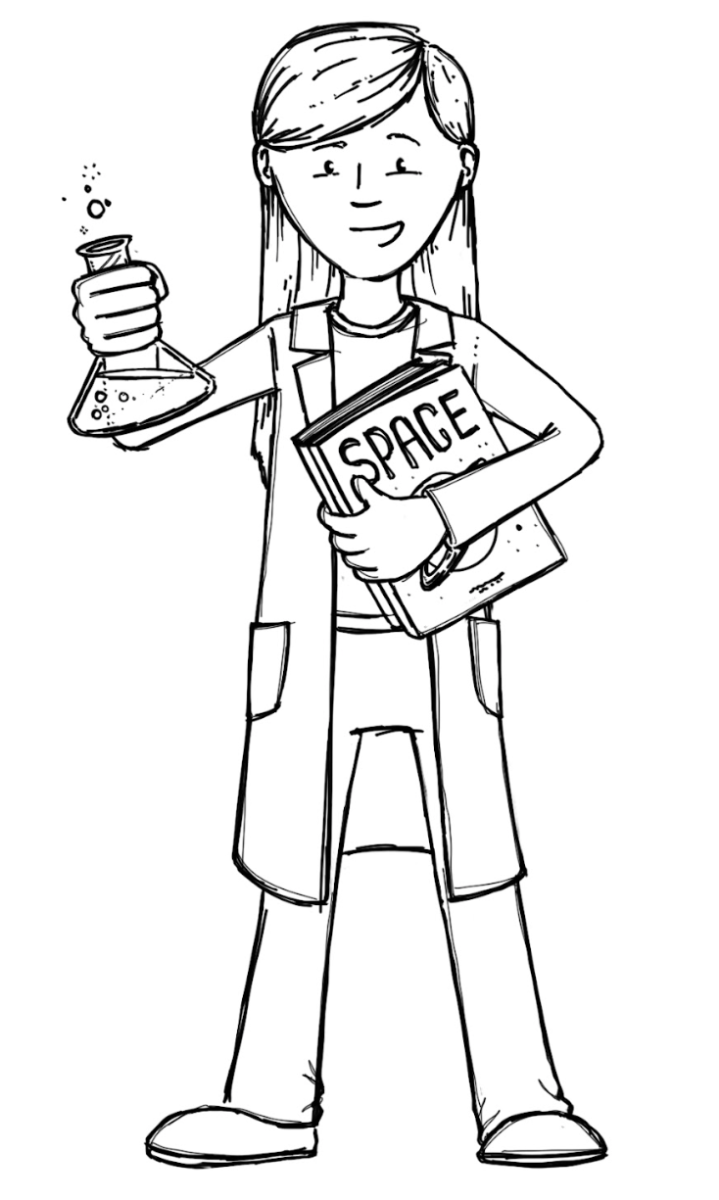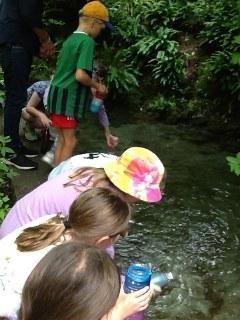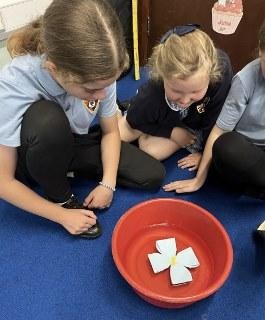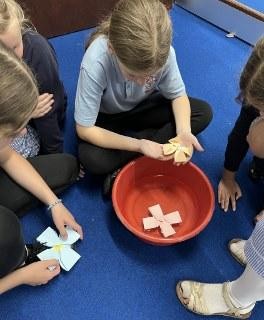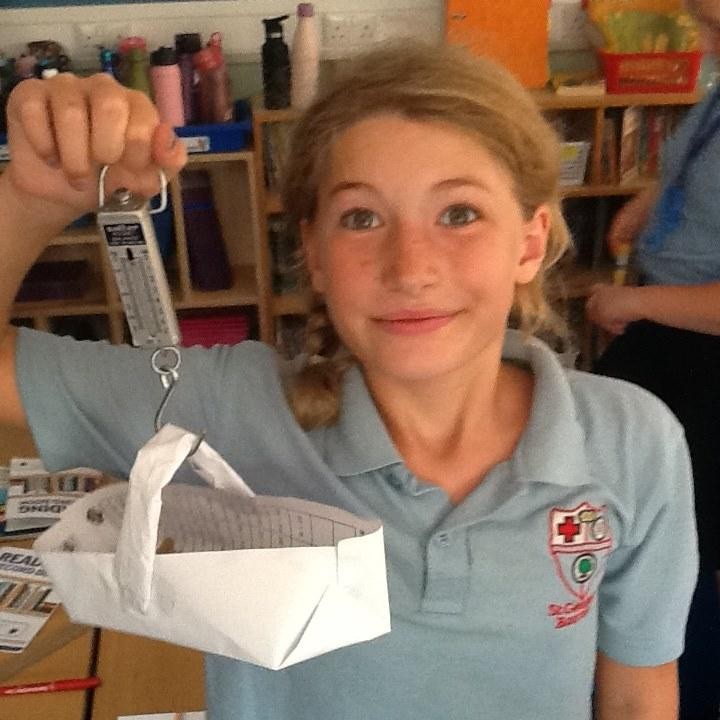We are determined to stimulate the curiosity of every individual at St George’s, developing a thirst for learning in finding out why things happen in the way that they do. We teach methods of enquiry and investigation to stimulate creative thought. Children learn to ask scientific questions and begin to appreciate the way in which science will affect the future on a personal, national and global scale.
Where possible, Science is linked to other curriculum to demonstrate links across the subject areas but still retaining its importance as a core subject.
Science at St George’s is taught through practical lessons wherever possible, developing the skills of working scientifically and enquiry based learning, supported by subject specific knowledge and vocabulary, all of which become increasingly challenging as pupil progress through the school.
Science helps children to understand more about the world around them and encourages them to question aspects that they don’t understand. Children are given an awareness of the role and importance of science in everyday life together with a consideration of the part that science has played in the development of everyday items. Our children are also given the opportunity to consider ways in which living things and the environment need protection.
They are encouraged to observe, to collect and record information and to interpret that information linked to these two main areas.
- Scientific knowledge and conceptual understanding.
- The nature, processes and methods of science
The objectives for Science in KS1 and KS2 are clearly set out for each year group in the National Curriculum. See below for more information.
The national curriculum for science aims to ensure that all pupils:
- develop scientific knowledge and conceptual understanding through the specific disciplines of biology, chemistry and physics
- develop understanding of the nature, processes and methods of science through different types of science enquiries that help them to answer scientific questions about the world around them
- are equipped with the scientific knowledge required to understand the uses and implications of science, today and for the future
Early Years Foundation Stage
We teach Science in EYFS as an integral part of the topic work covered during the year. Ongoing scientific experiences and opportunities are planned from the objectives set out in the Early Year Framework, which underpin the curriculum planning for children age 3 – 5. Knowledge and Understanding of the World ensures children develop early scientific ideas and processes through hands on activities, practical exploration and outdoor experiences.

